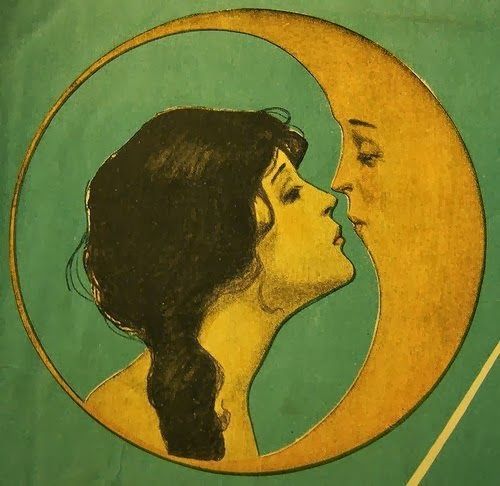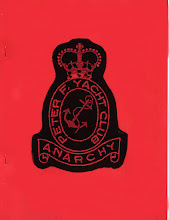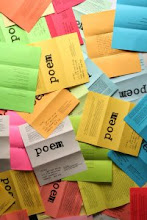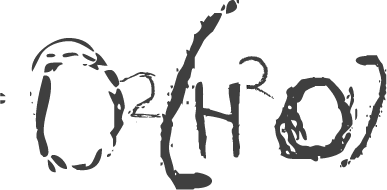NOW
AVAILABLE: G U E S T #7
edited
by Susana Gardner
the
seventh (double!)issue features new work by:
Book one:
Melissa
Benham
Megan
Burns
Genève
Chao
ELÆ
Annie
Finch
Susana
Gardner
K.
Lorraine Graham
Jaimie
Gussman
Book two:
Pattie
McCarthy
Danielle
Pafunda
Adra
Raine
Jessica
Smith
Alina
Stefanescu
Michelle
Taransky
Bronwen
Tate
Elisabeth
Workman
$6 + postage / + $1 for Canadian orders; + $2 for US; + $6 outside of North
America
AUTHOR BIOGRAPHIES AND
POETIC STATEMENTS:
MELISSA BENHAM is the author of At
Sea (Ebook: Duration Press & Printed chap: Hooke Press), Codeswitching (Subday Press) & the
chapbooks repronounceable and surrealist object vs. narrated dream.
Melissa is an alum of Naropa’s School of Disembodied Poetics. She ran the
monthly Artifact Reading Series in San Francisco & Oakland for six years.
She has taught poetry & playwriting to children & teens in Bay Area
public schools, juvenile detention centers, and family homeless shelters.
Currently, she works at Saint Mary's College of California managing their great
books program and January term. Melissa lives in Oakland with poet, Brent
Cunningham & their children, Mina & Jules.
two poems from SERAPH
Process:
In
1996, Hameroff and Penrose theorized a model of consciousness they called
Orchestral Reduction (OR) in which the brain was seen as a quantum computer. 20
years later the brain went from a computer model to a quantum vibrational
orchestra. Hameroff: "Brain patterns repeat over spatiotemporal scales in
fractal like nested hierarchies of neuronal networks with resonances and
interference beats." Poetry is a translation of emotional feeling
overtones in the body received through the auditory thalamus when spoken and creating
vibrational patterns within a whole brain resonance that entrains the
participants. These poems are from a new collection called SERAPH in which the poet acts as tuning fork for the struck sound
of eternal or universal sound. The sound is translated into language retaining
its vibrational patterns in order to shift energy in beings open to receiving
it at a level of vibrational healing. The only thing that interests in me in
poetry anymore is its ability to restructure and reprogram the human system
towards integration, wholeness and self-healing modalities.
MEGAN BURNS is the publisher at Trembling Pillow Press
(tremblingpillowpress.com). She also hosts the Blood
Jet Poetry Reading Series in New Orleans and is the co-founder of the
New Orleans Poetry Festival (nolapoetry.com). She has been most recently
published in Jacket Magazine, Callaloo, New Laurel Review, Dream Pop,
and Diagram.
ELÆ [Lynne DeSilva-Johnson]
from Speculative Resilience Field Practice &
Nonlinear Alchemical Disruptor Mechanism Protocol [in conversation with the Medicine Diaries and Systems Manuals of the Fewkin]
PROCESS NOTES / SCREED...
#documentingpresence :: #flora || #brooklyn 40.6782° N, 73.9442° W || working with the #disruptormechanism protocol every day. How can asking yourself different questions of your environment change your body? Your mind? Your senses? Ultimately, can it rewire your
perception and shift your ontological relationship to what you “know” about
your self, language, the world, place, others? I say yes. The plants have
been VERY chatty recently. Are you #listening? #nonhumanallies #vegetalconsciousness #plantcommunication #relationalaesthetics #socialpractice #fieldwork #documentation #experiment #experience #ritual #mindfulness #intention #selfhacking #selfcare #howtohuman #culturehacking #contemporaryart #conceptualart #art #artistsoninstagram #fluxus #somatics #writing #notes #fieldrecordings #fieldguide #opensource #peer2peer #invitation #project
It's part of a multipart "disruptor mechanism
protocol" that is then again part of a larger project -- I'm attaching a description
of the project I wrote up for a related application -- #documentingpresence is
an operationalized self-hacking re/orientation mechanism I'm first testing out
on myself using a set of explicit channels for observation and documentation,
with the goal of reprogramming body-->community-->human
systems--->biome for sustainability and nurturance (and survival, to be
explicit)
ELÆ [Lynne DeSilva-Johnson is an multimodal creator and scholar,
addressing intersections between persons, language, technology, and system
change. Recent features include Big Echo, Matters of Feminist Practice, and The Exponential Festival; the hybrid collection Sweet
and Low : Indefinite Singular as well as Boddy
Oddy Oddy, a
collaborative ekphrastic book with painter Georgia Elrod, are forthcoming. They
teach at Pratt Institute, and are Founder/Creative Director of The Operating
System.
2 poems for Megan Burns
GENÈVE/GENEVA
CHAO normally writes between the margins of language as stranger and native,
but is occasionally moved (here by the misogyny of the legal system, prevalence
of legal abuse as an interpersonal weapon, and parental and societal disregard
for children) to document other things.
The Empress is Speaking, Binding Spell
PROCESS:
I
no longer separate spirit from body, in life or in poetry. So I use meter as a spell to move me through
the poem --and to move the poem through itself, as I revise. Through experience
in poetry, healing, and ritual, I have uncovered/developed a set of metrical
correspondences. For example, “Binding
Spell” is in the meter of strength (a.k.a. trochaic) and “Empress” in the meter
of spirit (a.k.a. amphibrachic).
ANNIE FINCH
is the author of The Poetry Witch Little
Book of Spells, just out from Wesleyan U Press, along with Spells: New and Selected Poems and 16
other volumes of poetry and poetics. She
currently teaches in the low-res MFA at St. Francis College, Brooklyn as well
as in private ms. consultations and in her trademark Wisdom of Rhythmic Language
workshops (anniefinch.com).
SUSANA GARDNER
2 poems from
The Sea Argots
PROCESS:
Writing as impulse and making sense of the
inward as well as outer world. Writing as becoming and self-expression. Writing
as it can contain multitudes bestowing forms akin to craft and creativity that
begets the muse or poetic magic. Letters and words bustle about in the mind and
in dreams like sea-words of waves and a culling pursuit of thus. The employment
of words as self-expression and creative representation is as healing as it is
generative and sustaining.
SUSANA GARDNER is the author of three full-length poetry
collections: [ lapsed insel weary] (the tangent press, 2008), Herso (Black Radish, 2011) and CADDISH (Black Radish Books, 2013). Her latest book, Somewhere Upon a Time / Oceanids & Dreampomes is forthcoming.
She lives on an island off the New England coast where she tends books, writes
and curates the online poetics journal and experimental press, DUSIE.
I don't know. / Nothing here., I was going to call it, "A Brief
History of Breast Pumps.", The Perspective of This Article is Limited and
Mostly Uninteresting
PROCESS:
These poems were my attempt to write discrete poems with line breaks. I managed
to stick with the line breaks, mostly, but they became a series, like
everything I write. When I wrote them, my son was 8 months old and nursing
frequently, which means I spent a lot of time expressing breastmilk at work.
K. LORRAINE GRAHAM is a writer and visual artist. She is the author of TERMINAL HUMMING (Edge Books, 2009) and THE REST IS CENSORED (Coconut Books,
2015). After a decade in California and an MFA at the University of California
San Diego, she lives in Washington, DC with her family.
ROUTE 7,
ROUTE 8 and ROUTE 10
JAIMIE
GUSSMAN lives and works as a writer, teacher, and potter in Kaʻaʻawa. Her first book, Anyjar, was
published in 2017 by Black Radish Books. She is a recipient of the Ian
MacMillan Prize (2012) and the Rita Dove Poetry Award (2015). She also has
three chapbooks: Gertrude's Attic (Vagabond Press,
2012), The Anyjar (Highway 101 Press, 2011), and One
Petal Row (Tinfish Press, 2011). Gusman’s work can be found in the
anthologies Jack London is Dead (Tinfish Press 20 2013), All We
Can Hold: Poems of Motherhood (Sagehill Press, 2015) and The
End Of The World Project (Moria Books, 2019). She is the founder of
Mixing Innovative Arts reading series in Honolulu, holds a PhD in Literature
and Creative Writing from the University of Hawaii, and an MFA in Poetry
from the University of Washington.
A selection
of poems from “rogationtide”
PROCESS:
“rogationtide” is part of a long (as yet untitled)
series which began as daily writing practice— a goal I regularly fail to meet.
The poem is drafted without regard to form & shaped into couplets after
some time away from the material. I am a very slow writer— & I came to this
particular process in an effort to just get the work down whenever the time to
write presented itself. This poem is about working with the time one has.
PATTIE MCCARTHY is the author of seven books of poems, including the
forthcoming wifthing (Apogee Press). She is also the author of
over a dozen chapbooks, including the forthcoming mercy, a midden (Bloof
Books). She is a nontenure track Associate Professor at Temple University,
where she teaches creative writing, literature, & first year writing.
3 poems from “A Mother Named Her Child
Rumor”
PROCESS:
“I have always had to, and will always have to, live
consciously within the meat of the body, and this meat life influences every
fiber of my politics/poetics.” “In poetry I try to do at least one thing
consistently: to attract the gaze, to pin or fix it in place, and then show it
those sights which brutalize, horrify, repulse, or shame it.”
DANIELLE
PAFUNDA is author of ten books, including Beshrew (Dusie
Press), The Book of Scab (Ricochet
Editions), The Dead Girls Speak in Unison (Bloof
Books), and the forthcoming Spite (Ahsahta Press 2020). She teaches
at Rochester Institute of Technology.
Process
Statement – A Poem for Poets
When
you learn something new you can’t unlearn it, the world as you know it
rearranges around this new knowledge, all the relations change.
There
are things after you don’t understand before you are.
It
didn’t make sense to me when they told me. Now I warn the others. I recognize
their faces unconvinced.
Remembering
is an act of imagination. I try to imagine what it was like before I knew, in
order to tell it.
Parents
say to their children: When you have kids, you’ll understand.
Must
it be that we don’t tell people things so that they will know it. But for some
other reason. Not for reason.
ADRA RAINE, author of Want-Catcher
(The Operating System, 2018), recently completed her PhD in contemporary U.S.
poetry at the University of North Carolina at Chapel Hill, and is currently
working on a new project titled "Undissertating," which is or isn’t
what it sounds like it might be
ALINA STEFANESCU
"14 Monostichs Make a Fruitcake"
"I Wanted An Emptying Out-Poem"
Poetics:
"14 Monostichs Make a Fruitcake" baked
itself after I failed an easy fruitcake recipe and started wondering how the
word fruitcake became an insult. I'm always fascinated when delicious things
turn hurtful in the mouth. Speaking of mouths, I'd been playing with monostiches,
or single-line poems, and the itch to subvert the form rubbed against the urge
to play with the angel on the pedestal, to poem her out a little. It struck me
that monostichs resemble one single black stitch over female lips and so I
counted to see how many stitchs it would take to sew my mouth shut. Fourteen
will do it.
"I Wanted An Emptying Out-Poem" came out
of a poetry reading where two friends read poems about recent school shootings
and police violence against black bodies. In their introductions to the poem,
Lamar and Lauren mentioned this feeling of being emptied out by the cruelty. I
wanted an emptying-out poem.
ALINA STEFANESCU was born in Romania and lives in Alabama with four
incredible mammals. Find her poems and prose in recent issues of Juked,
DIAGRAM, New South, Mantis, VOLT, Cloudbank, New Orleans Review Online, and
others. Her debut fiction collection, Every Mask I Tried On, won
the Brighthorse Books Prize and will be available in May 2018. She serves as
Poetry Editor for Pidgeonholes and President of the Alabama
State Poetry Society. More arcana online at www.alinastefanescuwriter.com or
@aliner.
5
August 2010 / Buffalo, 6 August 2010 / Buffalo
Process: I write by hand at night, before bed, with a cup of tea.
JESSICA
SMITH is the author of numerous chapbooks including Trauma Mouth (Dusie
2015) and The Lover is Absent (above/ground press, 2017) and three
full-length books of poetry, Organic Furniture Cellar (Outside Voices
2006), Life-List (Chax Press 2015), and How to Know the Flowers
(Veliz Books 2019). She is a member of the National Book Critics Circle and
teaches at the University of Alabama at Birmingham.
Statement
of poetics:
My rabbi said on Facebook that he’s moving to
Providence. My high school friend’s dad died of Cancer, suddenly. There’s a group text about it. I feel
nothing. I should say out loud: he coached my 4th grade basketball team. My dad
said he didn’t play me because I was Jewish. I was a bad bad basketball
player. Later I’d read Bad Bad by Chelsea Minnis and wonder how
she knew exactly how to talk about being Jewish without being Jewish. I open up
another tab to research if She’s Jewish. At the same time I text my
friend Emily, “Is Chelsea Minis Jewish?” There’s a news story about Frank
Sherlock being in a white supremacist band. I’m scared to search twitter to see
the extent of it. The most Jewish thing
about me is that I make jokes about tragedies.
When I was getting my MFA at Iowa, my boyfriend and I were in the same
workshop with the poet Mark Levine. Mark
said the experimental poets wouldn’t want me since I went to Iowa, and the Iowa
poets didn’t feel pleasure or reward reading my difficult poems, so that was
that. I didn’t know I would be charged
with choosing the wrong family. So, all my dads are white men who teach at
Universities and wear theory goggles. They were born before I was born! My
boyfriend bought me a holocaust calendar for my birthday that semester. Is
Chelsea Minnis Jewish? Emily says Chelsea Minnis poems are really WASPY.
MICHELLE
TARANSKY is the author of Abramowitz-Goldberg
(Factory Hollow, forthcoming 2019), Sorry
Was in The Woods (Omnidawn, 2013) and Barn
Burned, Then, selected by
Marjorie Welish for the 2008 Omnidawn Poetry Prize. Taransky teaches courses in
critical and creative writing at Penn and is the Reviews Editor for the online
poetry and poetics journal Jacket2.
TO RECALL
THAT SOUND, AGAINST REACTION, TO SEE BOTH SIDES, THREE PROSE POEMS
Statement:
Here are two sets of three poems that speak to
some of the different ways I approach composing poetry. The first set draws on
Lorine Niedecker, in particular the five-line form she developed after reading
a bunch of haiku. I tried to use a specific moment to create
a poem that might serve as an amulet or charm centered around a particular task
or affective state. I’m interested in use here: other poems from the
same series offer themselves as invocations “To Accept Dailiness,” “Against
Choking,” and “For Respite,” for example. The second set draws on readings of
Harryette Mullen (and Hoa Nguyen’s generative workshop) and plays with sound
and idiom. For these prose poems, I started by generating a list of words with
various kinds of affinity (sonic and semantic) and then worked with them to see
what associations, patterns, and memories were sparked by their juxtapositions.
Both sets are thinking through mothering—its exhaustions and intimacies.
BRONWEN TATE is an assistant professor of Writing and
Literature at Marlboro College, a tiny radically egalitarian educational utopia
usually buried in snow in southern Vermont. She is the author of six poetry
chapbooks, most recently Vesper Vigil
(above/ground, 2016). Her poems and essays have appeared in the Journal of Modern Literature, 1111, Denver Quarterly, LIT, TYPO, and elsewhere.
ELISABETH WORKMAN
Limbo Figure, Infernal Figure
Note on Process: Poetix of scraps and collapses Poetix of having survived try
carmelite water try tantrum try what salary this is stolen time and I am the gluttonous
thief sea leggy and mutant writing shanties in the light of google docs while
the villagers sleep try divination Poetix of more than x, y and more than o, y
and more than a, y and y is always propulsion Poetix of inextricability, the
society of the tentacle, of root magic the future is botanical Poetix of
rupture and caesura as incision slash wand slash joint slash presence Poetix of
finally reading My Emily D and being butterflied by it Poetix per the genius of
my writing wives Poetix of Perpetuity and Gargantua and Electra and Margery
Poetix of too bad per Aase Berg “It’s too bad language had to be transformed
into a market-economy power apparatus for pleasure-opposed morons” Poetix of
countercraft & paradisiacal alchemy per the word plus a dash (of blood or
cum or y) plus a dash (of salt or dirt or y) plus word plus space equals
transformation Poetix of the changingness of figuration Poetix of the sway back
and forth and back the rocking and rocking even years after their infancy but
always body memory rhyming with a still underslept and mad and messy and
excessive and tenderly good enough volition.
ELISABETH WORKMAN is a poet and writer currently living
in Minneapolis. She lives in the disembodied realm here: elisabethworkman.com.


































